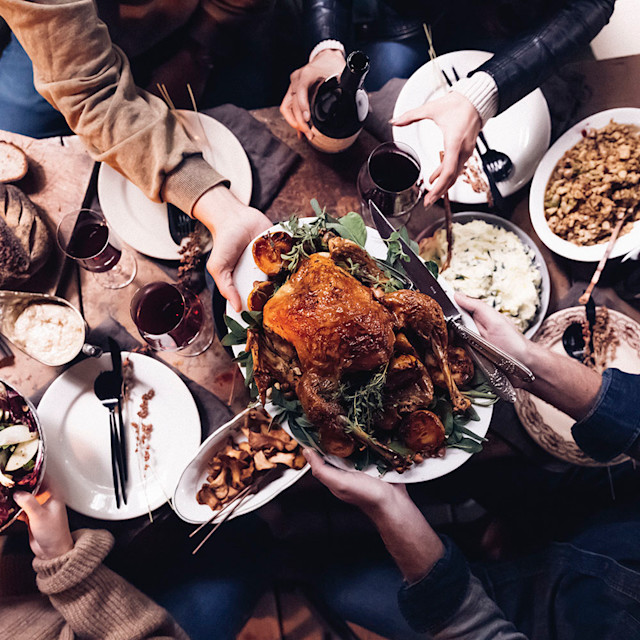4 tips for mitigating seasonal diet stress
The healthy body is actually well equipped to handle a few holiday indulgences. A recent study in the American Journal of Physiology—Endocrinology and Metabolism found that while five days of overeating (similar to what happens during a string of festive gatherings) increased the amount of visceral fat in lean, healthy men, their body weight and overall fat mass did not go up. Visceral fat is the fat surrounding organs that increases the risk of chronic disease. The reason is because the body made adjustments to dump out excess glucose and maintain their weight.
What’s more, relaxing your routine may benefit you in other ways. “Many people don’t give themselves a break because they’re stuck to rigid habits and eating clean,” says Leigh Taylor Weissman, food and beverage manager for Equinox in New York City. Being vigilant with your diet and exercise regimen can be tiring, so easing up within moderation gives you permission to enjoy the foods you love.
Here's how to enjoy the season in a mindful way:
Only eat when you're sitting down.
Eat only when your food is plated and you're sitting down, says Zach Moore, CSCS, an Indianapolis-based coach at Precision Nutrition. Not only will the strategy help you consume slower, you'll also be able to focus more on the experience of being with loved ones around the table. “Much of the joy of food is about preparing the food and sharing it with others," adds Moore. "That’s what brings you pleasure and meaning after the fact. The joy of eating, however, is acute. It’s a short-term thing.”
Get out of the scarcity mindset.
December may be the only time you drink eggnog or eat snowman-shaped sugar cookies, and that's fine. The problem, however, arises when this thinking creates a feeling of scarcity, says Krista Scott-Dixon, Ph.D., a coach and director of curriculum development at Precision Nutrition in Toronto. This can lead to poor decisions and even hoarding behavior, she adds. “There’s also a very good chance that what you’re [actually] craving is the feeling associated with this [food], like family, togetherness, or happiness. Instead, snap your brain out of a scarcity mindset by telling yourself that you're an adult who can eat whatever you want whenever you want—you'll be less likely to binge."
Anticipate family pressures.
We all fall into eating habits when with family, both consciously and unconsciously, says Scott-Dixon. “That includes what, when, and how we eat,” she adds. Before going to a family event, assess yourself. Do you always eat a bigger plate than you want or gorge on a treasured family recipe because a certain relative pushes you to eat up? Do you drink more alcohol than normal to deal with family stressors or emotionally eat in response to prying questions? Understanding the connection between your mental space and food can help you prepare to deal in more constructive, non-food ways. And, when it comes to food pushers, you can always say no, says Scott-Dixon.
Avoid the binge-restrict cycle.
You may find that intentionally restricting yourself in preparation for a dinner makes you more prone to bingeing that night. The next day, you may attempt to compensate and overcorrect. This can create a cycle where the food gets so hyped up that it becomes your sole focus, says Moore. You can break free of the restrict-binge-restrict pattern by trying to acknowledge that these occasions are different, and not overreact to every eating scenario.
